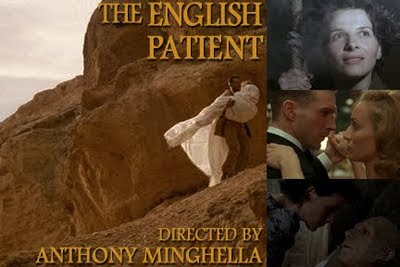The Desert
The
desert is an inevtrucable elements of The
English Patient. Firstly, it provides a background for the special love
between Almasy and Katharine.
The first time Almasy met Katharine, that was a
beautiful night in the desert with fires, she was reading a poem from his book
of Herodotus. Almasy was deeply attracted to her beauty and grace. I guess
so did Katharine, though it wasn’t mentioned in the book. On some levels, the
fire in the desert symbolizes the secret spark between them is growing. Later,
they travelled together and have love affair in yellow sand, they even imagined
they were swimming in the sea. Later, the tragedy also happened in the desert.
Almasy carried Katharine to the cave, promising her that he would come back and
never leave her alone. But eventually, he cannot keep his promise and Katharine
died in the cold and dark cave alone. In her last words for her lover, there is
a sentence impressed me a lot:” I know you will come and carry me out into the
palace of winds.” This solemn and moving imagery finally comes true, the man
carried Katharine’s dead body, standing in the desert wind and wailing terribly.
In the brown and monotonous desert background, he looks extremely lonely.
In
addition, desert also symbolizes “no boundary”, this is the reason why Almasy
loves it a lot. No county boundaries are fixed in the desert because sand is
moving all the time and it moves without any restrictions. It makes people feel
free and relaxed. Its broadness let people forget about different nationalities
or races.








